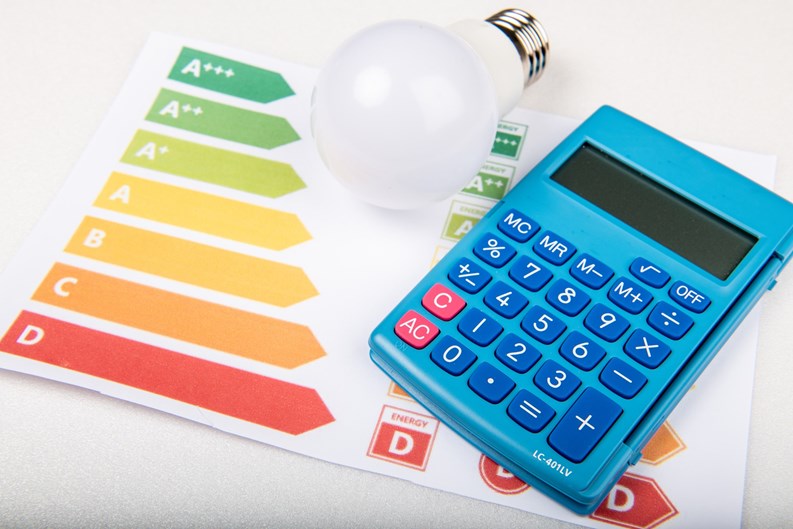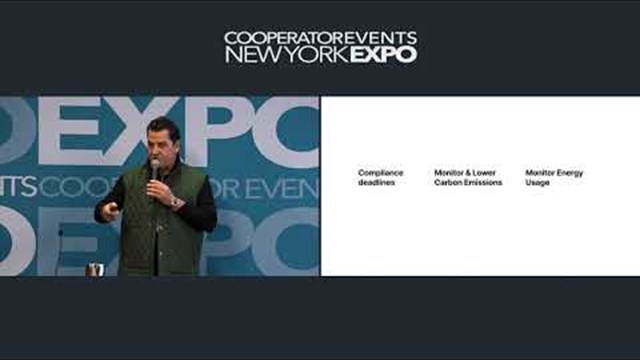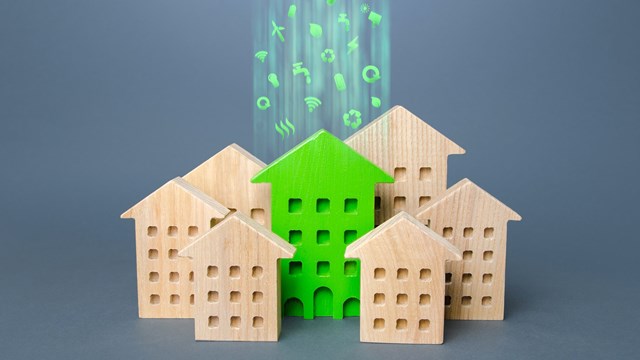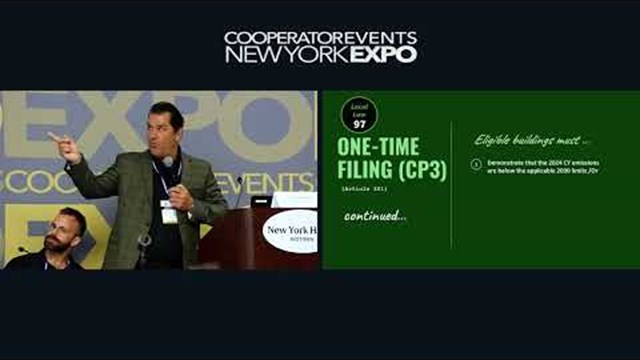Deadlines for benchmarking reporting for all apartment buildings - co-ops, condos, and rentals alike - has been postponed from May 1, 2022, to May 31, 2022. The postponement gives building and property owners more time to accumulate and organize required data, but at the same time presents a growing burden on owners and managers to monitor and catalog data relative to environmental issues, which is becoming increasingly expensive in terms of both paperwork and system upgrades.
Shifting Deadlines
According to Matt Cebula, director of energy services at AKAM Management, a property management firm with offices in New York and Florida, “The original submission deadline was May 1, 2022. This year, Con Edison moved the request window for whole building aggregate data from February 15 to March 1. This alone cut the benchmarking season down by a full 20 percent. This shorter window was compounded by Con Edison’s inability to upload full year 2021 energy detail - they removed all periods billed with zero kwh, a/k/a ‘therms’ from the upload - and still do not have a mechanism to upload from all meters. National Grid separately uploaded the same detail at least twice for just about any and every meter linked to their network prior to 2022. This error doubled or tripled the amount of heat and/or hot water billed for outer borough properties.” Hence, the change in deadline.
The hope is that ConEd’s inability to provide required data in correct formats to owners for benchmarking reporting won’t be repeated with the many other local ordinances faced by apartment owners and dwellers in New York City. The City’s push to achieve a zero-carbon footprint under local law 97 looms, beginning in earnest in 2025. In addition to the efforts put forth over the years for benchmarking to monitor and improve energy performance, real changes to physical plants will be required to reach stated goals under LL97.
Is LL97 Reasonable? Achievable?
“The law is onerous,” says Dan Wollman, CEO of Gumley Haft, a real estate management firm based in Manhattan. “That’s because a 30-unit co-op on the Upper East Side which has already converted to gas and switched to LED lighting in the basement, stairwells, hallways, and lobby common areas still won’t get a passing grade. If a co-op or condo, or for that matter a rental property, does all these things, there is little more they can do for energy efficiency. They won’t get a passing grade, and there’s nothing more they can realistically do.”
Cebula adds that, “On the surface, 2025 thresholds will not be difficult for most buildings to move below if they are not already there. But absent a meaningful adjustment in carbon coefficients when the thresholds are lowered in 2030, it will be very difficult for many buildings to pursue cost effective energy projects that will move them into the non-penalty class of buildings.”
Just Pay the Fines?
These difficulties raise the question of whether co-op and condo properties should spend potentially huge amounts of money to correct their energy efficiency deficiencies, or simply absorb the fines they will be subject to for insufficient compliance with upcoming energy regulations.
“There’s nothing more to spend on in some instances,” says Wollman. “What should a co-op or condo do if they have completed all the work and still don’t have a passing grade? That is the issue. They will have to pay the fine. They may not be able to reach the goal in the end. That’s the problem. It may not be a question of spending money to reach the goal. There may be no more work to do, realistically.”
“It is too early to consider multi-million dollar electrification projects when the greening of the grid has not meaningfully begun,” says Cebula . “We are advising clients to continue to pursue any project with a reasonable payback that will save immediately (LEDs replacements, heat monitoring system, insulating pipes, etc.) as this will impact the annual energy expense and incrementally improve for LL97.”










Leave a Comment